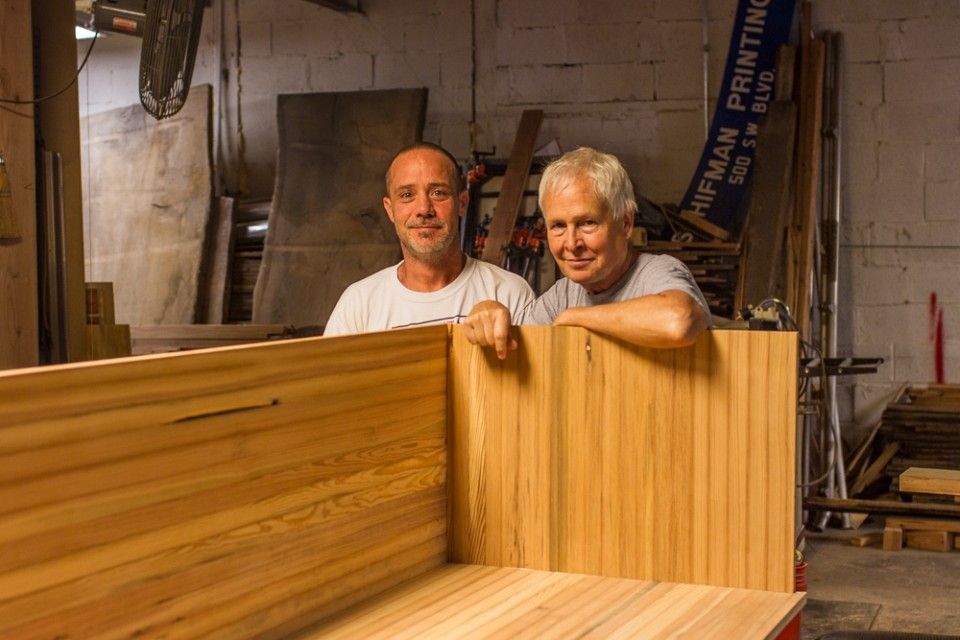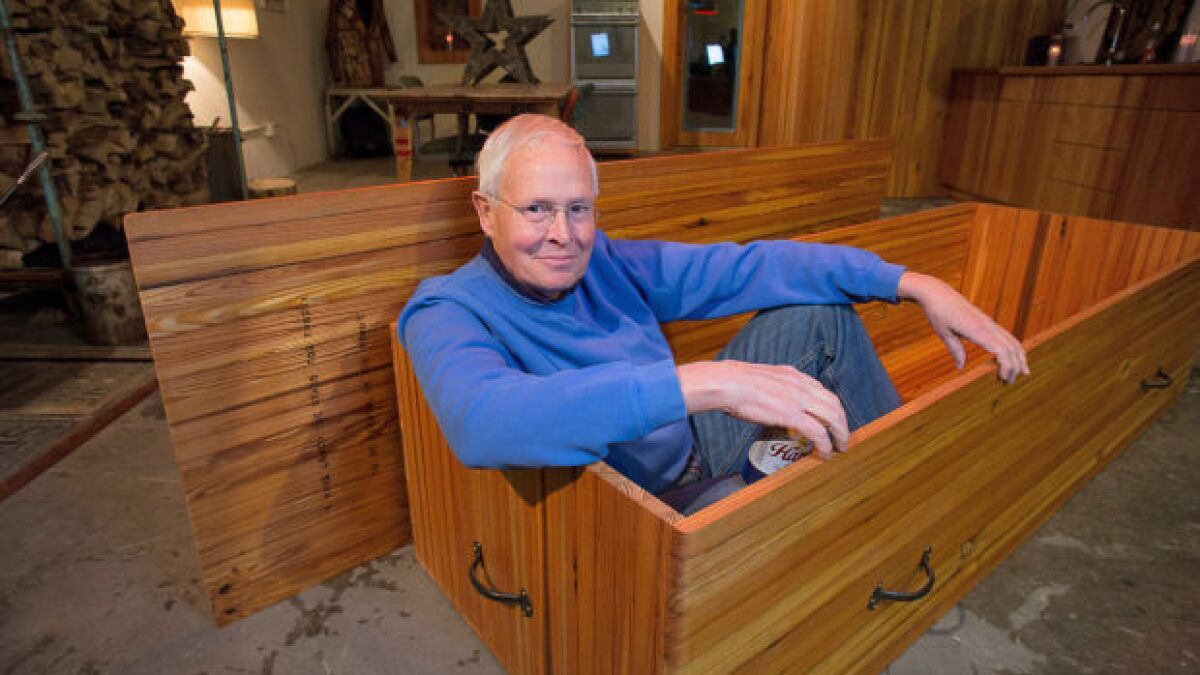Jeff Piehler is a retired thoracic surgeon. In 2002, he was diagnosed with incurable Stage 4 prostate cancer. He has tried every conventional treatment and many trial ones. Dr. Jeff is the first to say that he has lived a wonderful life, despite his illness. But he knows that his journey is coming to an end – and relatively soon. So he decided to build his own coffin.
His family and friends were uncomfortable with the idea – they felt it was a sign of “giving up.” But the exact opposite motivated the project. Dr. Jeff wanted something simple and beautiful that “would be both a celebration of life and acceptance of my death.” Dr. Jeff wrote about the project in a piece in a local newspaper
He contacted Peter, a carpenter and artist, who agreed to work with him if his wife and family approved, which they eventually did. The two could not be more different: Peter’s earring, tattoos and free spirit were a counterpoint to the surgeon’s “proper fussiness.” But the two had enough in common to take on the project: to make something both practical and emotionally meaningful.

As they worked together to select the old wood, planning and cutting it, fitting the pieces together, and finishing the pine coffin, the two developed a close friendship. They talked about what they wanted to accomplish with their remaining lives and what they regretted about their pasts. It gave Dr. Jeff an outlet to talk about his fears of death and leaving his family. Dr. Jeff writes: “We’d made a stunningly beautiful pine box, and a stunningly beautiful friendship. But we knew neither could last, and that this was the very reason to celebrate them.
“Something else happened, too. The project smoothed the edges of my thoughts. It’s pretty much impossible to feel anger at someone driving too slowly in front of you in traffic when you’ve just come from sanding your own coffin. Coveting material objects, holding on to old grudges, failing to pause and see the grace in strangers – all equally foolish. While the coffin is indeed a reminder of what awaits us all, its true message is to live every moment to its greatest potential.”
Dr. Jeff takes great joy in the fact that just above where he will lie, embossed on the underside of the coffin’s lid, is his favourite line of poetry: “I have loved the stars too fondly to be fearful of the night.”

Shari Hartbauer / Lincoln Journal Star
Jesus tells his disciples that he goes ahead to “prepare a dwelling place” for each of us – and our lives are a journey to that place. In our simplest everyday “works” of generosity and reconciliation, in the simple love and care we give and receive from family and friends, we begin to know God and understand the fullness of the life he calls us to – a dying surgeon rediscovers that meaning in the practical preparations for his death. As Christians, we live in the eternal hope of one day living in God’s dwelling place – but that “place” of hope and compassion and peace exists in the places we create where the love of family and friends is celebrated, the poor and sick are cared for, and the struggling and rejected are welcomed. In taking on, with joy and resolve, the work of compassion and reconciliation the Risen One entrusts to us, we build a dwelling place for God in our midst; we establish the reign of God in the here and now. Jesus makes clear in today’s Gospel that we find God in doing the work of God: in our roles as loving parents to our children, in healing those broken in body or spirit, in seeking out and bringing home those lost in despair and fear. As God transforms our lives in the light and peace of his Son’s resurrection, we are called to be about the work of transforming our world into God’s garden: breaking down the “garbage” and “waste” of life into a “compost” in which God’s reconciliation and mercy can be realized.